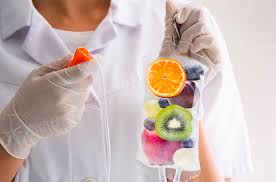Ascorbic acid, or vitamin C, is an essential water-soluble vitamin. It occurs naturally in abundance in animals and plants. Only a few types of animals, including guinea pigs, humans, and the majority of primates, require ascorbic acid in their diet. Humans are unable to produce vitamin C endogenously due to a lack of an enzyme, L-gulono-gamma-lactone oxidase, which catalyzes the final step in ascorbic acid production. It functions as a key cofactor and electron donor during collagen hydroxylation, promoting the maturation of intracellular and extracellular collagen synthesis. Ascorbic acid is a promising nutraceutical that occurs naturally in food and provides medical or health advantages.
Ascorbic acid, often known as vitamin C, is an essential component with antioxidant properties. It can protect molecules from free radicals in both the extracellular and intracellular environments of biological systems.
However, ascorbic acid is thermally unstable and easily oxidized. During heat treatment, ascorbic acid is reversibly degraded into dehydroascorbic acid. Both chemicals are physiologically active.
how its work on skin hair

intravenous nutrition therapy
is the process of administering a predetermined combination of vitamins, minerals, amino acids, and other nutrients. By skipping the gastrointestinal tract, which typically hinders nutrient absorption, this approach allows the body to absorb and utilize nutrients more quickly. Clinical settings or wellness centers are where qualified medical workers administer intravenous drips.
Advantages Of IV Drips
Energy Enhancement: Because IV drips enriched with B vitamins, magnesium, and amino acids can naturally boost energy, combat fatigue, and improve general vitality, they are popular among athletes and working professionals.
Detoxification: Certain IV drip formulae contain detoxifying substances like glutathione and activated charcoal, which improve liver function, help the body rid itself of toxins, and aid in the overall detoxification process.
Skin Rejuvenation: IV drip therapy is a useful way to receive antioxidants like glutathione and vitamin C. These substances aid in the reduction of oxidative stress, the elimination of free radicals, and the promotion of collagen synthesis, all of which enhance the skin’s hydration, suppleness, and brightness.
Different IV drip types
IV drips can be adjusted to meet your body’s specific needs. The main categories of IV drips are as follows:
Skin Glow Drip (optimal for radiant skin): contains antioxidants including glutathione and vitamin C that reduce oxidative stress, combat free radicals, and boost the production of collagen.
enhances the skin’s moisture content, elasticity, and brightness for a radiant complexion.
Ideal for those seeking anti-aging benefits, improved skin texture, and general skin regeneration.
How Much Time Do IV Drips Take?
The duration of IV drip therapy sessions may differ according on the specific formulation utilized and individual factors such as goals of treatment and health. Sessions for IV drip therapy usually last between thirty and sixty minutes. However, longer infusion times may be required for some formulations, particularly if higher fluid or nutrient dosages are being administered. Additionally, the number of IV drip therapy sessions may vary based on the patient’s needs and treatment plan.
Depending on the patient’s metabolism, degree of hydration, and nutrition intake, the effects of intravenous drips can vary. The effects of IV drips that enhance energy and hydrate the body often last for several days.However, people may benefit for weeks or even months from therapies that target their skin or hair condition.
Adverse Reactions to IV Drips
Even though IV drip therapy is generally safe, there can be unfavorable effects to consider. Bruising or pain at the injection site, momentary vertigo, or mild allergic reactions to the ingredients in the drip are common side effects. Rarely, more severe side effects like infection, venous irritation, or abnormal electrolyte levels may occur. Adequate or excessive consumption of particular nutrients may also result in unfavorable side effects such as nausea, vomiting, or renal impairment.
A qualified healthcare provider must closely supervise the administration of IV drip therapy in order to monitor for side effects and ensure that the patient is properly hydrated and electrolyte balanced during the procedure. Allergies and prior medical conditions should be declared in order to lower the risk of problems.